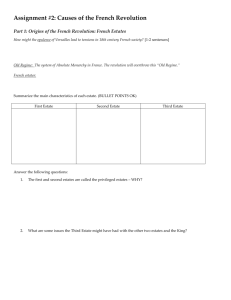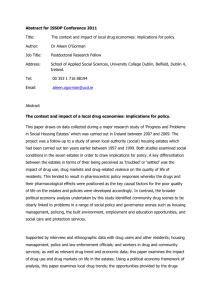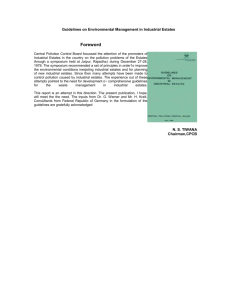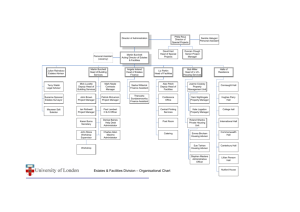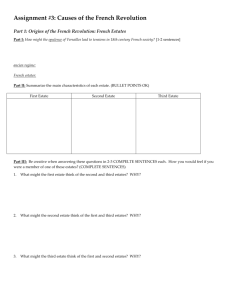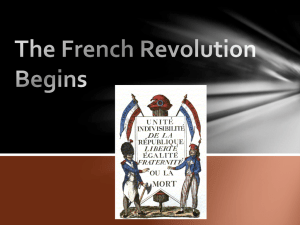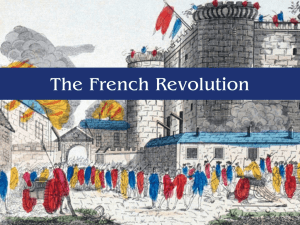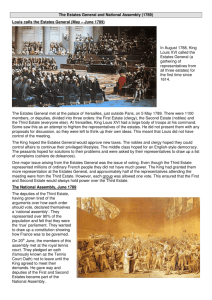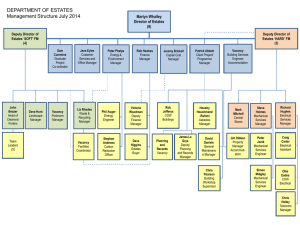The Revolution Begins and the Estates General
advertisement
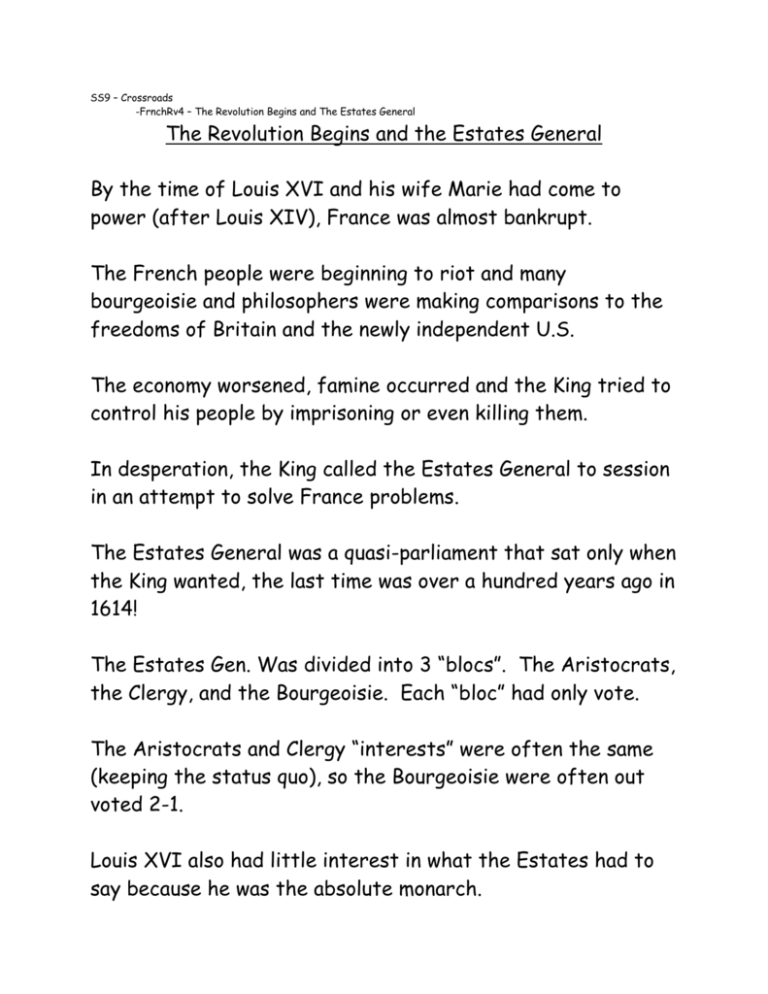
SS9 – Crossroads -FrnchRv4 – The Revolution Begins and The Estates General The Revolution Begins and the Estates General By the time of Louis XVI and his wife Marie had come to power (after Louis XIV), France was almost bankrupt. The French people were beginning to riot and many bourgeoisie and philosophers were making comparisons to the freedoms of Britain and the newly independent U.S. The economy worsened, famine occurred and the King tried to control his people by imprisoning or even killing them. In desperation, the King called the Estates General to session in an attempt to solve France problems. The Estates General was a quasi-parliament that sat only when the King wanted, the last time was over a hundred years ago in 1614! The Estates Gen. Was divided into 3 “blocs”. The Aristocrats, the Clergy, and the Bourgeoisie. Each “bloc” had only vote. The Aristocrats and Clergy “interests” were often the same (keeping the status quo), so the Bourgeoisie were often out voted 2-1. Louis XVI also had little interest in what the Estates had to say because he was the absolute monarch. SS9 – Crossroads -FrnchRv4 – The Revolution Begins and the Estates General KEY The Revolution Begins and the Estates General Directions: Read pages 72-74 in your text Crossroads – A Meeting of Nations. 1. On a separate piece of paper, provide definitions for the following terms; Republican Government a government in which all power rests with the citizens who vote to elect their leaders A.R. Turgot (who was he?) was the controller general of finances who was forced out of office by Marie Antoinette. 2. On a separate piece of paper, answer the following questions using COMPLETE SENTENCES; a) How did French officers and soldiers learn about the freedoms gained by American citizens? (1 mk) Many of them helped the American colonists fight against Britain in the American Revolution. b) Describe two specific ways in which France and its peoples were experiencing hardships in the 1780’s (2 mks) 1. A series of famines and other disasters in the late 1780’s. Thousands of French people were close to starvation. Families broke up because parents could not provide for their children. More than 40,000 children were abandoned each year. 2. Britain’s Industrial Revolution was also putting French people out of work. Machines in England were more productive and lowered the price of British goods. French companies could not compete. High unemployment c) What was King Louis XVI’s response to the riots in Paris? What were the riots about? (2 mks) People demanded change and they wanted it soon. The Paris mob became violent and unpredictable. Louis XVI responded by imprisoning or killing the critics of the government. He eventually called the Estates General to try to find a solution to the problems. d) What was Louis XVI’s compromising proposal to the Estates General and why was he only willing to do that? (2 mks for quality of answer) He was not prepared to surrender absolute power to the people. He gave the Estates some small, token responsibilities, such as allowing them a say in fixing the tax system. 3. On the space provided on the back, draw a colored diagram any way you wish that demonstrates the relationship of the Estates General in the governing of the country of France with the King in the 18th Century. Be sure to identify all three parts of the Estates General as well as the King and be sure to provide examples of who or what type of persons belonged to each “bloc”. You will be marked out 5 for your design and quality of effort put into your diagram and out of 4 for your descriptions of the King and the three “blocs” of the Estates General, for a total of 9 marks Total:____/18 3. Draw a colored diagram any way you wish that demonstrates the relationship of the Estates General in the governing of the country of France with the King in the 18th Century. You will be marked out 5 for your design and quality of effort put into your diagram and out of 4 for your descriptions of the King and the three “blocs” of the Estates General, for a total of 9 marks
